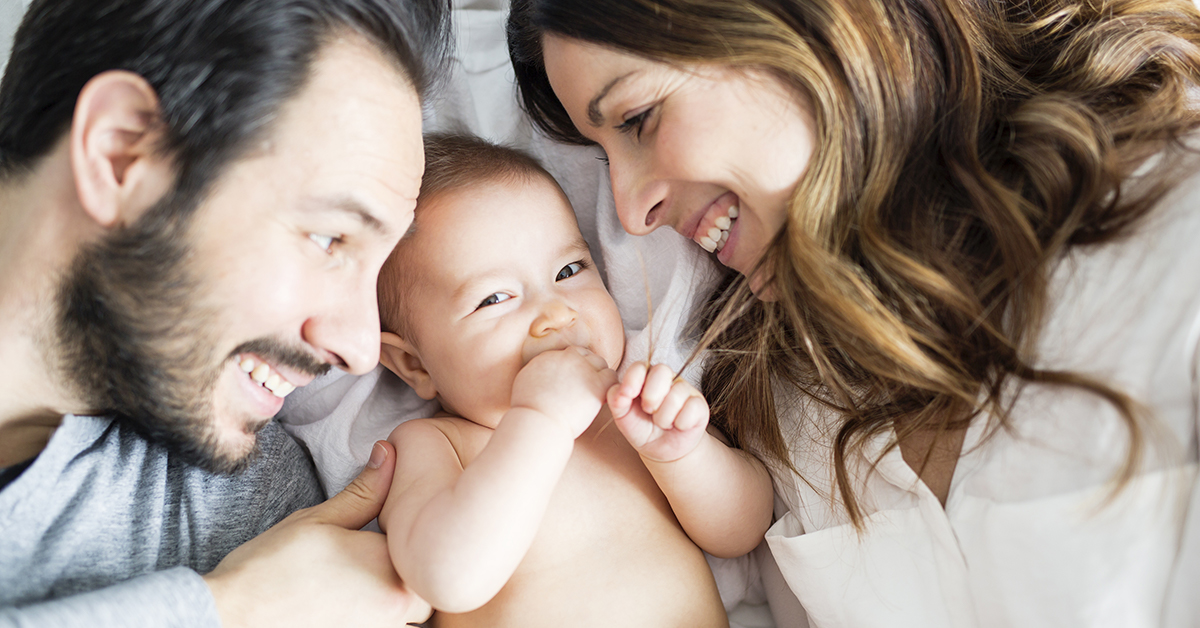
Children and your finances
Without a doubt, starting a family is one of the biggest decisions mentally, emotionally and financially you’ll ever have to make. From pre-baby costs such as medical care, baby furniture and cute clothes to everything that comes after, from nappies to nannies, there are countless things to consider when it comes to children and your finances.
Before you jump on the baby bandwagon, it’s time to get your finances sorted to set you and your family up for what’s to come. Read on for five things you should know about children and your finances.
Consider all costs and create a budget
"It’s one thing to secure a dream home with two incomes, but another as to what happens financially when you could potentially be on one income supporting three people," says Inovayt Commercial Finance Broker Manager, Martin Vidakovic.
From the moment you fall pregnant, there are so many costs to consider; from the first doctor’s appointment right up until your child is no longer a dependent. While it might be difficult to budget correctly for costs you’ve never experienced before, you can always include rough estimates in your budget.
Another thing to keep in mind when planning for a baby is the fact that it’s very easy to get carried away when walking through baby department stores with top-of-the-range prams, self-rocking cribs and a range of other things that new parents may feel they need. While it may feel tempting to purchase the best of the best for everything, remember how quickly babies grow, meaning all of these things will either become redundant or need to be replaced before you know it. Before making impulse purchases on pricey items like bassinets or new-born baby clothes, try looking at second-hand sites like eBay and Facebook Marketplace where you may be able to score a bargain – especially as the baby will grow out of these extremely quickly. If you plan on having a baby shower, it also might be an idea to add these items to a wish list or register, as well as drop hints to family and friends if there is something you are really set on.
Approaching your expenses conservatively may also help in the long run. Investing in cloth reusable nappies, which have a higher up-front expense, can work out to be cheaper than disposable nappies long-term (not to mention better for the environment!). Other things that might come in handy are sites such as Hire for Baby where you can rent products so you’re not holding onto them after the baby grows out of them or no longer needs them.
Look into medical and insurance policies
Whether you’re on a private health insurance policy or not, it’s important to have a think about what you want your medical and insurance policies to look like after starting a family. Aside from private health insurance, it's good to consider things like life insurance or income protection insurance in case the unthinkable happens and you’re unable to work or worse.
Having these policies in place helps to set you and your family up for the future. It's also something that you can 'set and forget' once you’ve put it in place, aside from future policy reviews.
Check what you’re entitled to
Depending on which state or country you’re in, as well as your field of work, there are often certain government entitlements you may be entitled to such as paid parental leave, dad and partner leave and the family tax benefit. These benefits are in addition to paid leave from your employer and help families with the upfront costs of having a child. Depending on your state and workplace, lengths of parental leave can vary so it is important to factor into your budget what costs you might incur if you need to take some extra time off.
Martin adds, "When you are heading towards maternity or parental leave, you can free up some money by reducing your payments by up to 50 per cent for 12 months. A majority of lenders will want you to have your mortgage established for 12 months prior to qualifying for parental leave."
It’s important to note that this advice is general only and doesn’t reflect individual circumstances.
Planning for your children's educational expenses
Planning for your children's educational expenses in Australia is an important aspect of financial planning for any parent. It's essential to start early and create a solid plan to ensure that your child's education is well-funded.
One of the first steps is to research the cost of education in Australia and identify the different types of schools available such as public, private, and independent. Private and independent schools can be significantly more expensive than public schools, so it is important to factor this into your budgeting.
Next, consider starting a savings account for your child's education and make regular contributions to it. It's important to choose an account that provides high-interest rates and flexible access to funds. Some parents choose to invest in educational bonds or other investment products that are specifically designed for educational expenses.
Another option is to plan ahead and start investing in your child's future through the government's Higher Education Loan Program (HELP) or the Australian Apprenticeships System (AAS). These programs offer loans to assist with the cost of tuition fees, and the repayments are made through the tax system.
Additionally, consider taking advantage of tax benefits, such as the Education Tax Refund, which provides eligible families with a tax refund to help cover the costs of education expenses.
Eliminate any outstanding debt
We know this is easier said than done but clearing out any outstanding debt can help bring you some peace of mind, as well as put you in a better financial position for when you decide to start a family. The last thing you need to deal with when your baby is born is worrying about an outstanding car loan or credit card bill!
It’s also a time when you can reassess current loans and policies you have, like your mortgage or car insurance, to ensure you’re getting the best deal on your repayments and policy. You never know, you could be getting a better deal somewhere else.
Plan for the unexpected When it Comes to Children and Your Finances
As much as it’s hard to think about, you must plan for the unexpected. It’s fine to budget for all costs associated with your children, but it’s important to consider where you’ll pull money from if something unpredictable happens like a burst pipe, broken-down car or emergency vet visit. Set yourself up an emergency fund with enough money to cover any expense that might pop up when you least expect it. Planning for the unexpected will give you peace of mind and ease stress if there is an emergency.
Having a baby is an exciting decision and a lifelong journey, but often we don’t consider the effect of children on your finances. If you’re planning on starting a family, it’s worth talking to a financial advisor professional about how to get your finances in order first.






